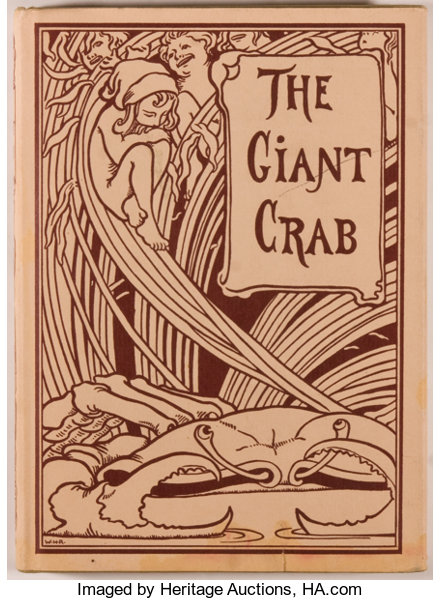Extra Credit Reading Notes: The Giant Crab
The Giant Crab, and Other Tales from Old India
Author sources: W.H.D. Rouse
This short story was much different from the epics I have been reading in this course thus far. Some of these stories involved the sole interaction and nature between animals, without any human implications upon the plot.
My reading notes will focus particularly on the first story, The Giant Crab. This story surrounds an animal population and ecosystem combating the enemy crab. A single, giant crab resides in a lake alone. What was the origin of this crab? To me, he sounded like a genetic wonder! What makes him harm others to eat as food? Is it stemmed from some source of anger?
I loved how Rouse related to the reader of the story, engaging how everyone has interacted or seen a crab in some capacity. But he assures, that this crab is much different for anything anyone has ever seen. I found it annoying that the animals were using a public source of resource in order to survive, and in doing this, it costs them their lives. I think there are some great political metaphors that could be used when retelling this story in a different light.
The way the crab killed his prey was cheap and unfair. First of all, he snuck up on the prey, giving them no warning and not letting them put up any fight. Second of all, he used the animal's inabilities to kill the animal first-- their inability to swim, followed by eating the already dead bodies.
In this story, the elephants symbolize wisdom, teamwork, and loyalty. One elephant couldn't have defeated the crab alone. They needed a thought out plan, and most importantly, trust that the elephant on watch for the crab would follow through. The story strongly abides to the popular saying: there is strength in numbers. This pledge of trust and loyalty was especially exemplified with the husband and wife pair of elephants.
It is not the original plan that defeats the crab. Instead, through a major bump in the road, the crab's weakness for beauty and desperate will for affection, is the cause of his own defeat. The author uses great imagery as the reader hears the CRACK of the crab's shells.
I loved how Rouse related to the reader of the story, engaging how everyone has interacted or seen a crab in some capacity. But he assures, that this crab is much different for anything anyone has ever seen. I found it annoying that the animals were using a public source of resource in order to survive, and in doing this, it costs them their lives. I think there are some great political metaphors that could be used when retelling this story in a different light.
The way the crab killed his prey was cheap and unfair. First of all, he snuck up on the prey, giving them no warning and not letting them put up any fight. Second of all, he used the animal's inabilities to kill the animal first-- their inability to swim, followed by eating the already dead bodies.
In this story, the elephants symbolize wisdom, teamwork, and loyalty. One elephant couldn't have defeated the crab alone. They needed a thought out plan, and most importantly, trust that the elephant on watch for the crab would follow through. The story strongly abides to the popular saying: there is strength in numbers. This pledge of trust and loyalty was especially exemplified with the husband and wife pair of elephants.
It is not the original plan that defeats the crab. Instead, through a major bump in the road, the crab's weakness for beauty and desperate will for affection, is the cause of his own defeat. The author uses great imagery as the reader hears the CRACK of the crab's shells.



Comments
Post a Comment